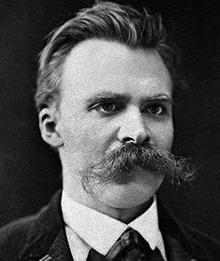Okay, so the idea that I could get one of these done per day hasn’t exactly worked out. However, I’m still going to finish the series, but it may take me longer than previously anticipated.
We need to seriously investigate whether people who have fame, power, and wealth are happy and whether those who have nothing are always unhappy. When we look into this, we see that happiness is not based on objects but on one’s mental state.
–Chokyi Nyima Rinpoche
In this bit of wisdom, Nyima encourages us to find evidence of the correlation between “fame, power, and wealth” and happiness. Are those three things–which seem to be interrelated in most Western societies–the source of happiness? If one answers “yes” to that question, then it naturally follows that people who do not have fame, power, or wealth are inevitably and perpetually unhappy. Further, since Nyima used a strong word like “always,” one only needs to find a single opposing case in order to completely refute and nullify the argument. Therefore, in this instance, anecdotal evidence seems sufficient to sustain Nyima’s investigation.
Fortunately, in the next sentence, he explains that these worldly and material things are not the stems of happiness. Rather, one’s “mental state” is more readily responsible for one’s happiness. As mentioned in Part III, it would seem that happiness (which is an emotional manifestation of a “good” situation) is not objectively determined by the situation around us, but rather by our perception of that situation. Nyima’s position, like Roshi’s, indicates that in order to feel fulfilled and to experience happiness, one needs to actively sustain positivity under both desirable and difficult circumstances. One cannot simply sit back and deem an aspect of or event in life as “bad,” and do nothing to change it; that will certainly result in unhappiness.
|:| Zach |:|


2 comments
Thank you for the information. I have updated the entry to reflect his name instead of the title. 🙂
Rinpoche is a title, not a name, and not a unique one.